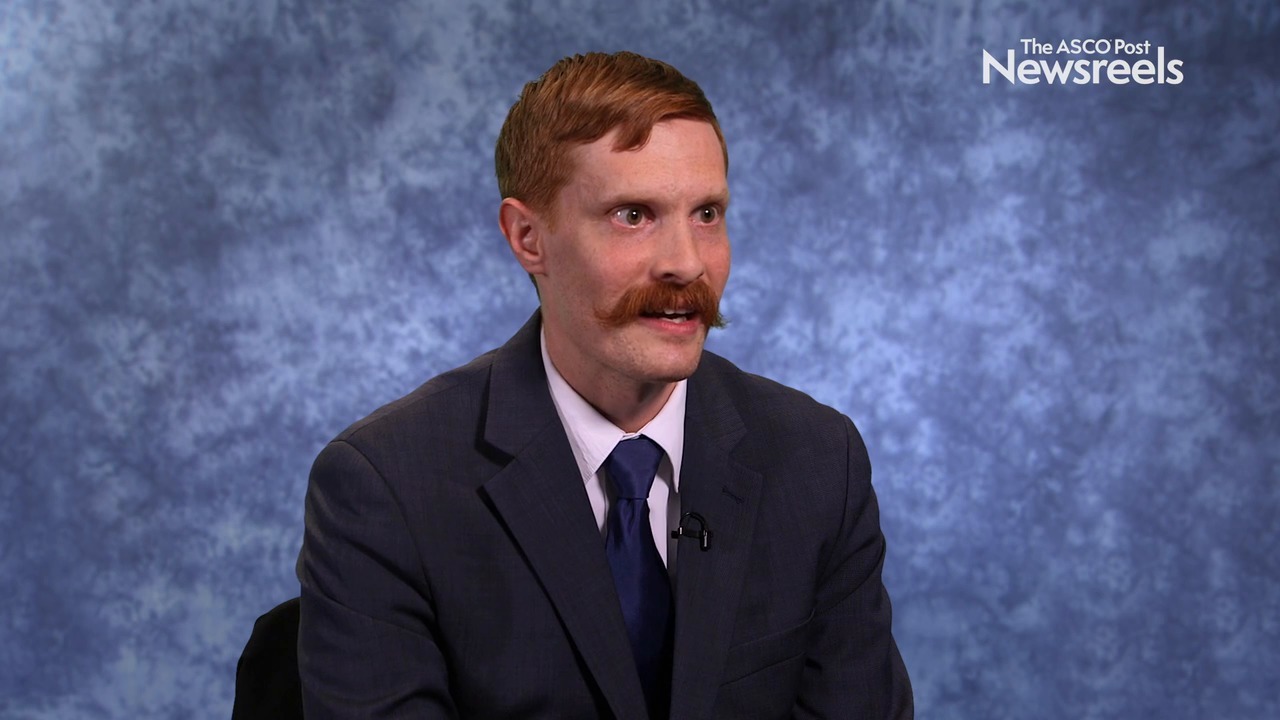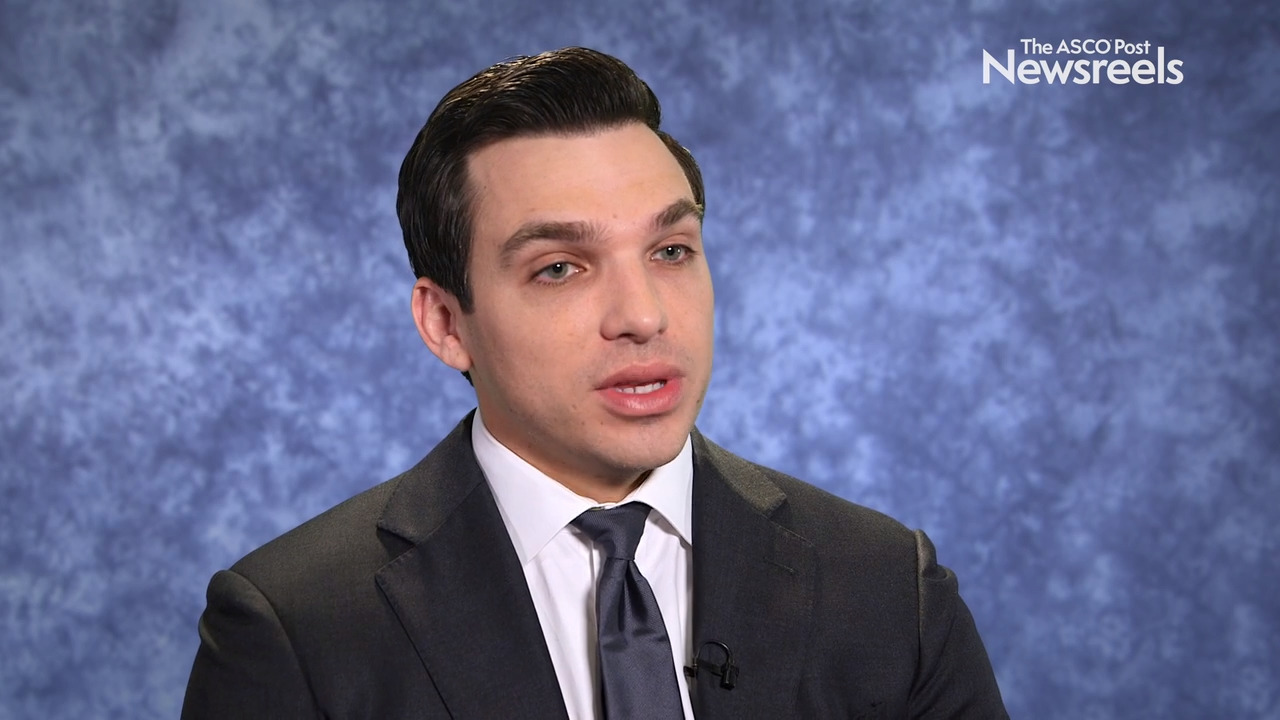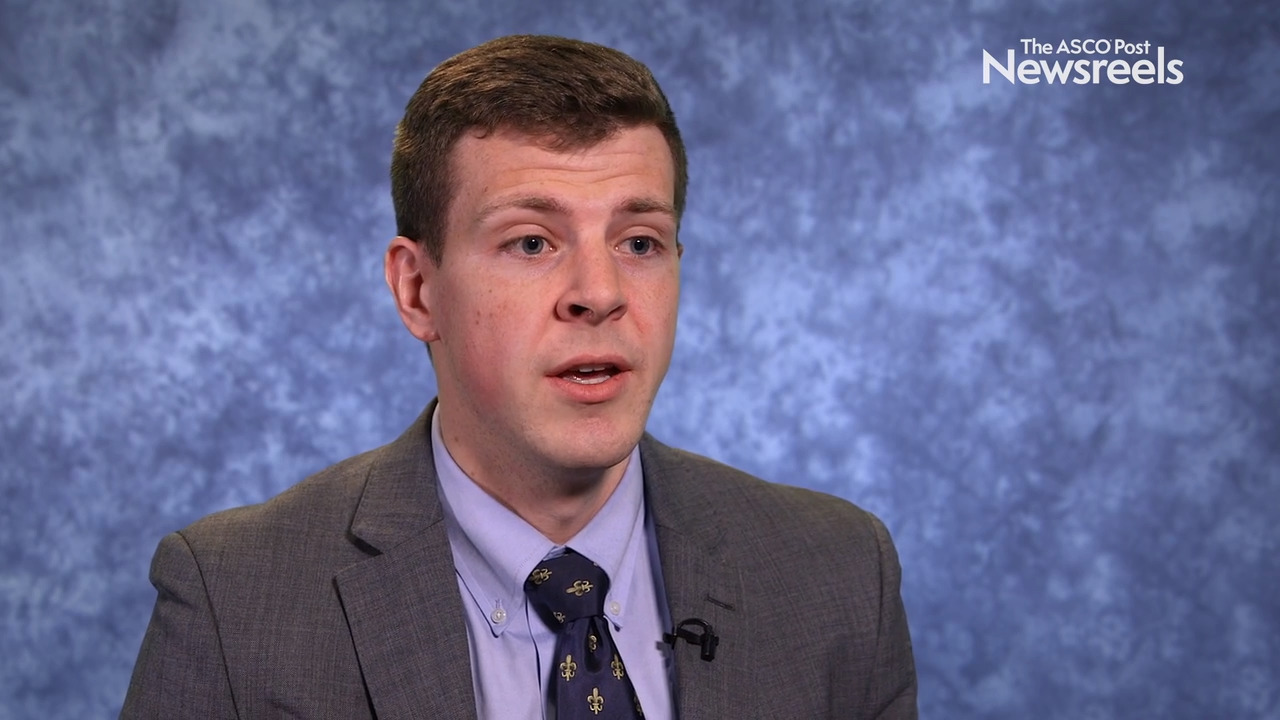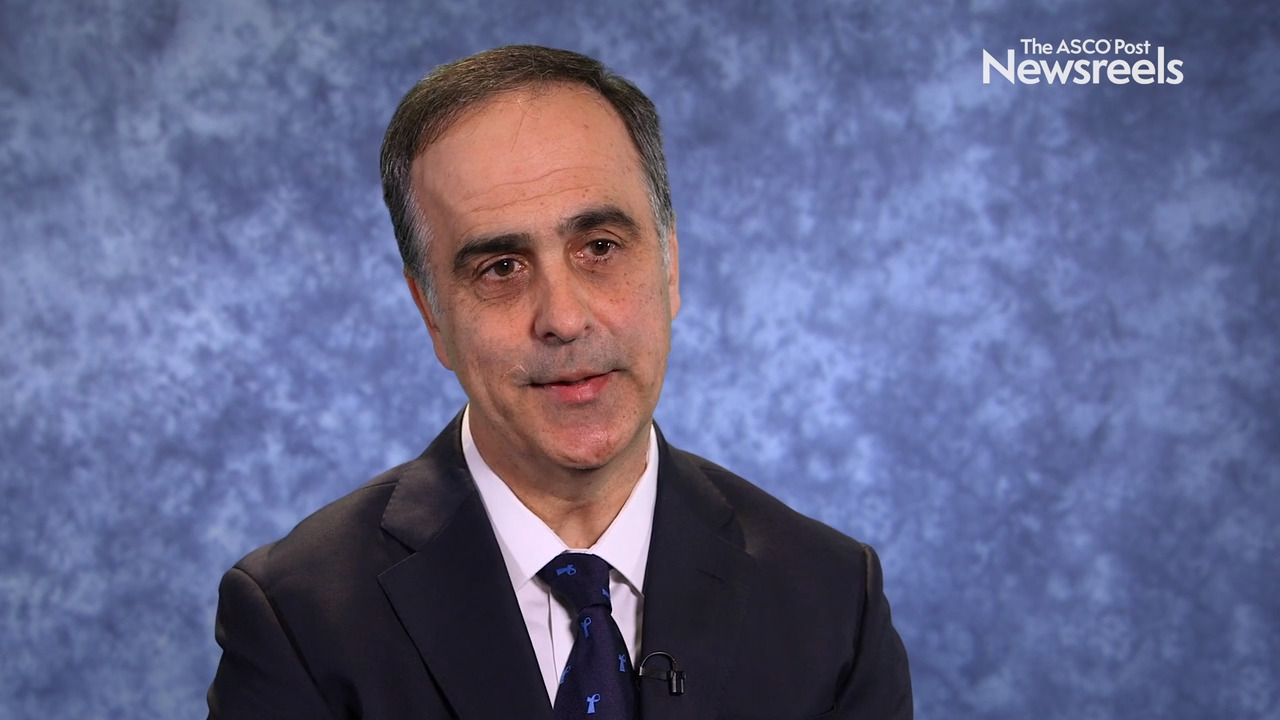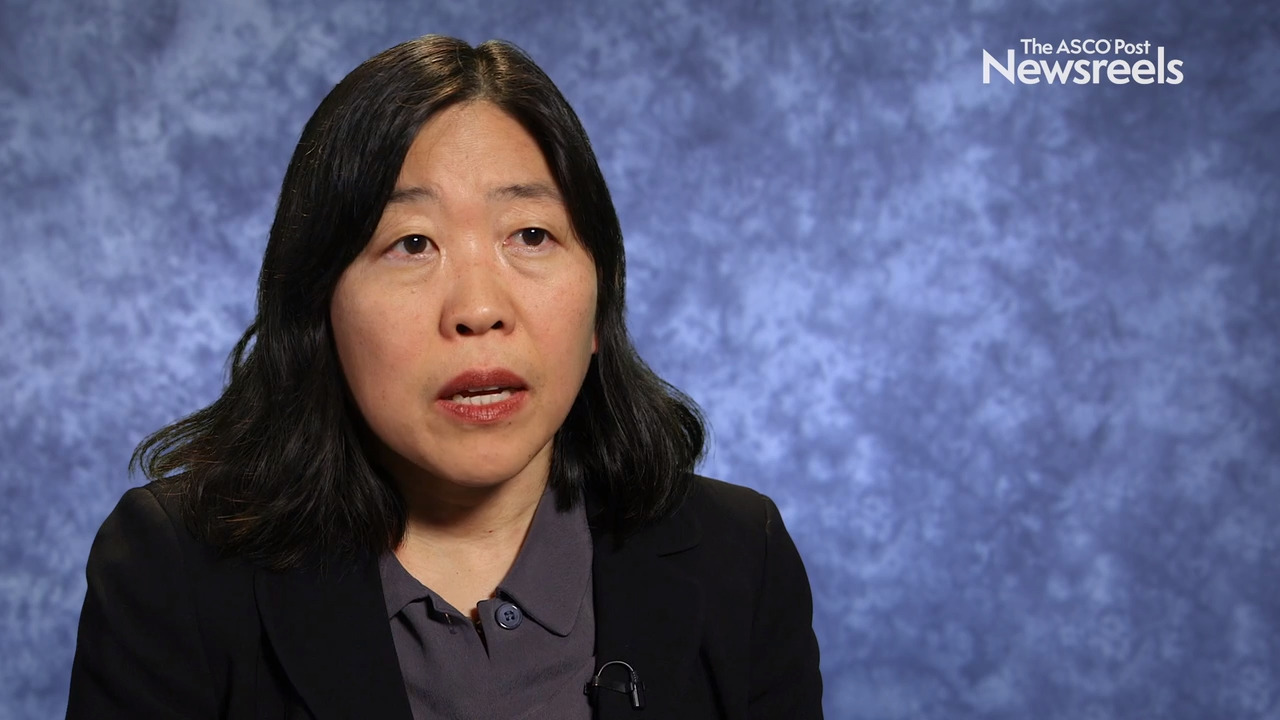Youssef Zeidan, MD, PhD, on HER2-Positive Breast Cancer: HERA Trial on Postmastectomy Radiation Therapy
2019 ASTRO Annual Meeting
Youssef Zeidan, MD, PhD, of the American University of Beirut Medical Center, discusses study findings showing that, in patients with one to three positive lymph nodes, postmastectomy radiation treatment decreased the risk of locoregional recurrence, particularly in estrogen receptor–positive disease (Abstract 83).
Ryan Phillips, MD, PhD, of Johns Hopkins Medical Institutions, discusses phase II findings suggesting that treatment with stereotactic ablative radiation significantly decreased the risk of disease progression at 6 months and increased progression-free survival (Abstract LBA3).
Daniel E. Spratt, MD, of the University of Michigan, discusses phase III study findings showing that 2 years of antiandrogen therapy increased cardiac and neurologic toxicities, as well as mortality from causes other than prostate cancer, in men with low levels of prostate-specific antigen after prostatectomy who received adjuvant early salvage radiotherapy (Abstract LBA1).
Justin Barnes, MS, of the St. Louis University School of Medicine, discusses his findings on the risk of suicide, which is higher in patients with cancer than in other adults but can be reduced by health policy interventions, including components of the Affordable Care Act (Abstract LBA9).
Andrew Kneebone, MD, of Royal North Shore Hospital, discusses phase III study findings showing that at 5 years, biochemical control was similar between adjuvant and early salvage radiotherapies, the latter sparing half of the men potential side effects of radiotherapy without any significant compromise in outcome (Abstract 77).
Sue Sun Yom, MD, PhD, of the University of California, San Francisco, discusses phase II results showing that swallowing-related quality of life after deintensified chemoradiation therapy may improve in patients with p16-positive, nonsmoking-associated, locoregionally advanced disease (Abstract LBA10).
